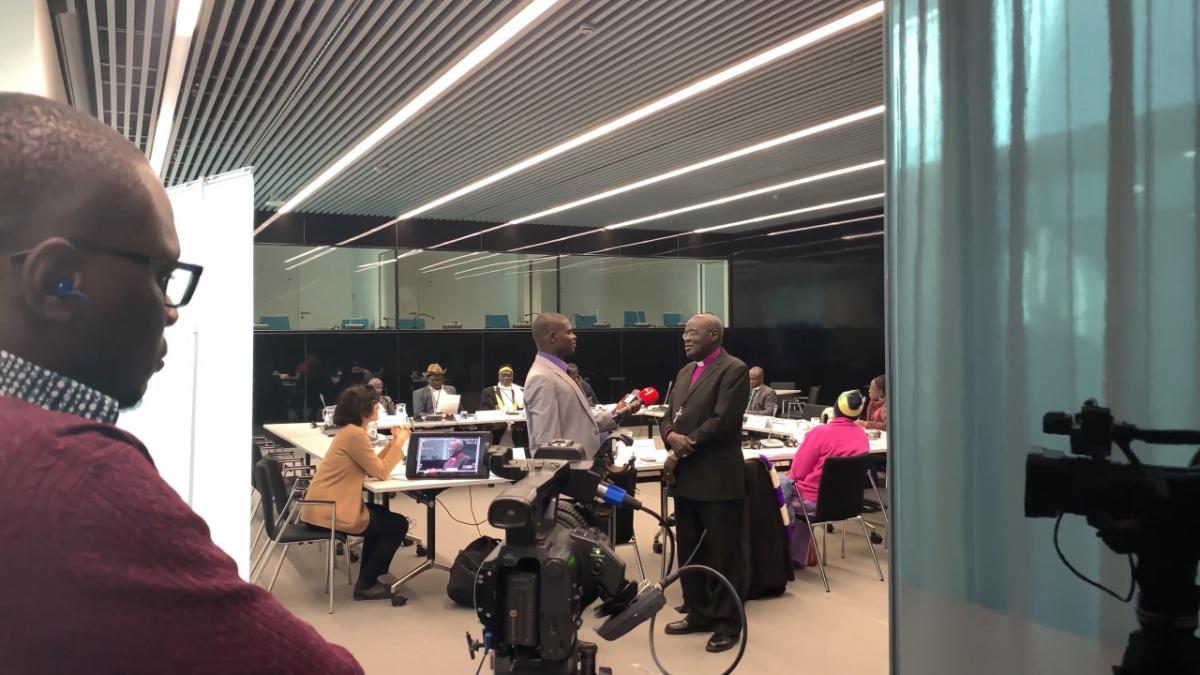Julien’s story: Stakeholders visit to the Hague

“The group from Uganda boarded the flight in Entebbe in the evening, and flew in overnight. I followed the flight on my phone. In the morning, I got a text message from the driver: everyone was safe and sound, and already on their way to the Court”. My name is Julien. I am in the ICC Outreach team in The Hague and this is the story of one of the stakeholders visits I helped organize.

The purpose of “the stakeholders visits” is to maintain a connection between the Court and the people living in the areas where crimes on trial have been committed; to see “with their own eyes” how the Court is working, and foster trust and support despite the distance. The visit in March 2020 was no exception. A group of 11 community and religious leaders, civil society representatives and journalists arrived in the Hague, to attend the closing statements in the Dominic Ongwen case.
After a month of preparations, I felt like a kid on the first day of school: Not entirely sure how everything would go, but happy to meet new people.
Preparatory work
A big part of organising stakeholders visits consists of meticulous planning - before, during and after the visit. Choosing discussion topics, contacting speakers, scheduling meetings, securing access to the hearings, producing yet another draft of the program until the final version (that of course is subject to change) … and then keeping track of time and the people, booking transport and accommodation, catering – to mention just some of the items on my list. And while looking at a to-do list can be stressful, encounters with people living thousands of kilometres away from the seat of the Court is an enriching experience. Not only professionally, but also personally.
A visit like no other
This visit started as usual, with introductions, over a cup of coffee or two. Together with a colleague, we introduced ourselves, introduced the programme, slowly getting to know a little by little more about everyone, asking about their needs in the next few days. Finding a quiet place to pray or unwind, organizing a visit to the city centre, or purchasing local SIM card to call home - we’ll make it happen, I promised.
And while we were following the usual routine, this week was certainly not the ordinary one. Already before the groups’ arrival, the threat of a pandemic was looming over our heads. And now, while the group was here, a worldwide lockdown became a possibility. We had no time to worry, but questions kept pouring our way: what was the health situation in the Netherlands? What was happening back home? Could we fly back? In a situation like this one, silence is probably the biggest obstacle. We were in touch with colleagues in Uganda, asking for their wellbeing and information, trying to provide some reassurance to the group, and ourselves.
Stress levels were reaching their highest when we’ve received a call from the hotel that one of our guests fell ill. Luckily, we were all a bit lost in translation. It turned out he was just feeling tired and wanted to stay in, for a few hours.
Even without an extra stress of the possibility of the Covid-19 pandemic, stakeholders visits can be intense. And I am not only talking about schedules packed with meetings or phone calls from hotels. The Court’s hearings could have emotional impact, especially on the visitors who may have a personal connection to what is discussed in the courtroom.
All’s well that ends well
Five days spent with a group might not be enough to tackle all the important subjects. It is, however, sufficiently long to allow a deeper and meaningful exchange on the topics of victims, justice, peace and life after a conflict.
The success of these visits is best measured by the satisfaction of the people the ICC hosts. It is always our last session – before the coffee and departure. For us, stakeholders visits are a unique opportunity to form a precious connections but also to put our work in perspective; to see the impact of the Court on survivors and other community members and to confirm again why it is so important.